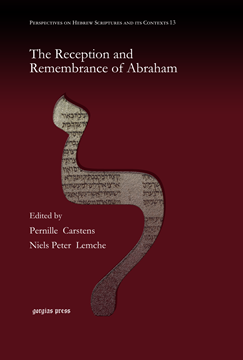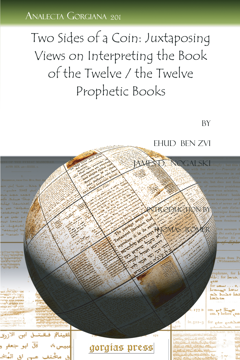Thomas Römer
The Reception and Remembrance of Abraham
ISBN: 978-1-4632-0054-1
This book explores the role of the biblical patriarch Abraham in the formation and use of authoritative texts in the Persian and Hellenistic periods. It reflects a conference session in 2009 focusing on Abraham as a figure of cultural memory in the literature of these periods. Cultural memory is the shared reproduction and recalling of what has been learned and retained. It also involves transformation and innovation. As a figure of memory, stories of Abraham served as guidelines for identity-formation and authoritative illustration of behaviour for the emerging Jewish communities.
$161.00 (USD)
Juxtaposing Views on Interpreting the Book of the Twelve / the Twelve Prophetic Books
Series: Analecta Gorgiana 201
ISBN: 978-1-60724-303-8
A conversation between James D. Nogalski and Ehud Ben Zvi on the question of The Twelve, its implications for the historically oriented study of the prophetic books in the Hebrew Bible, and for the reconstruction of the intellectual history of ancient Israel.
$54.00 (USD)


